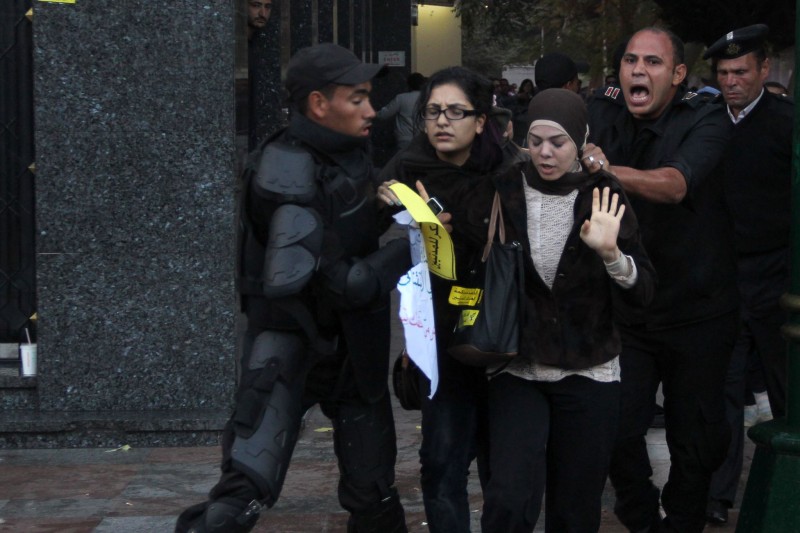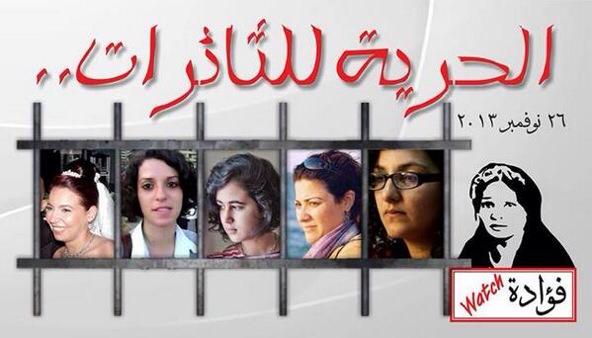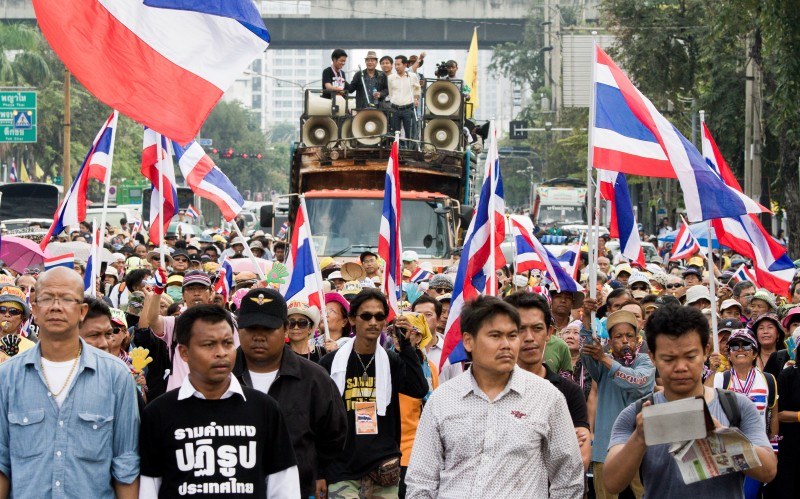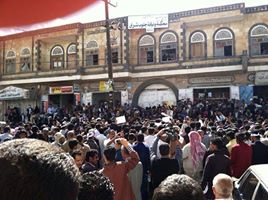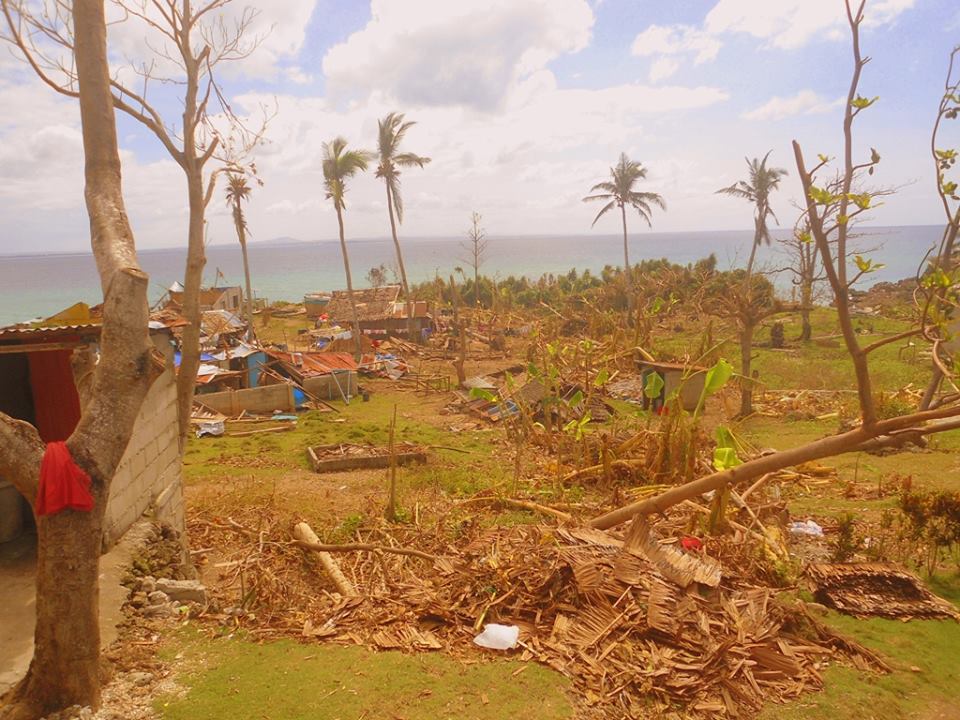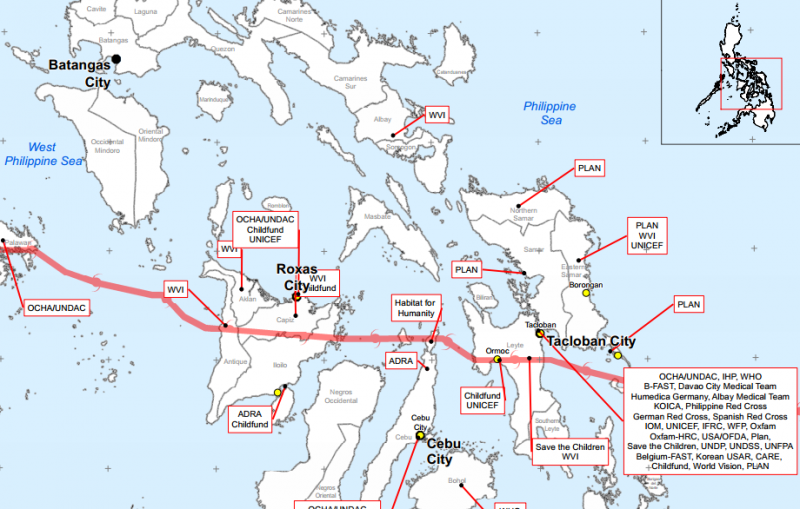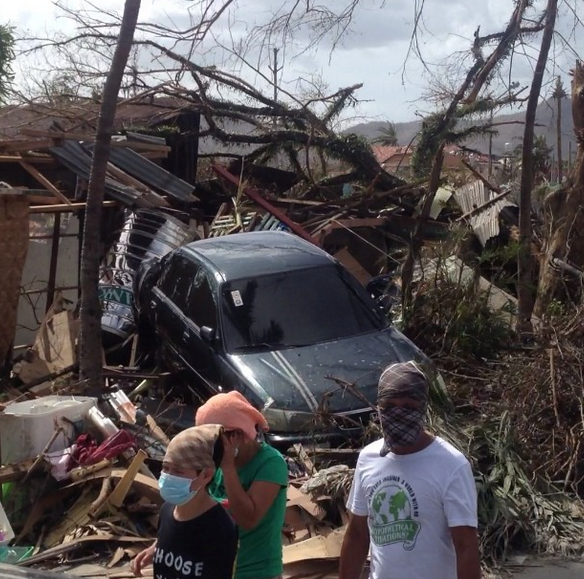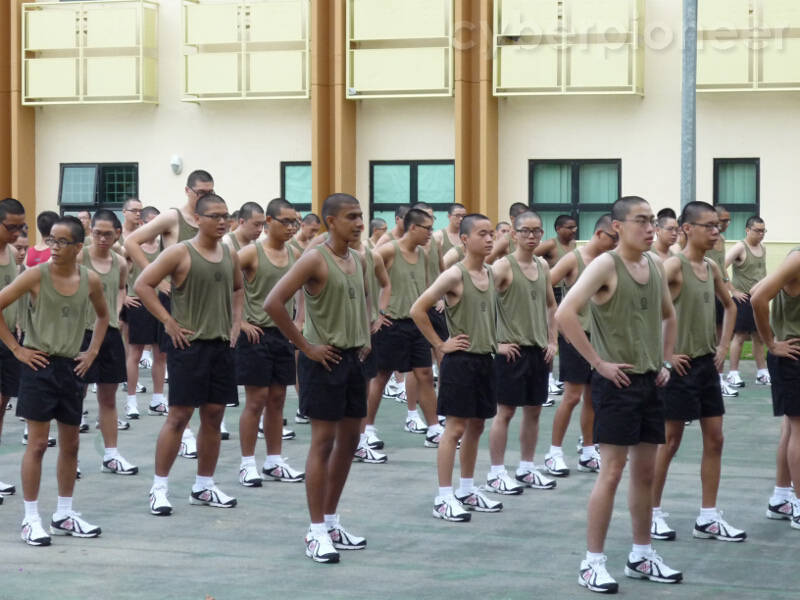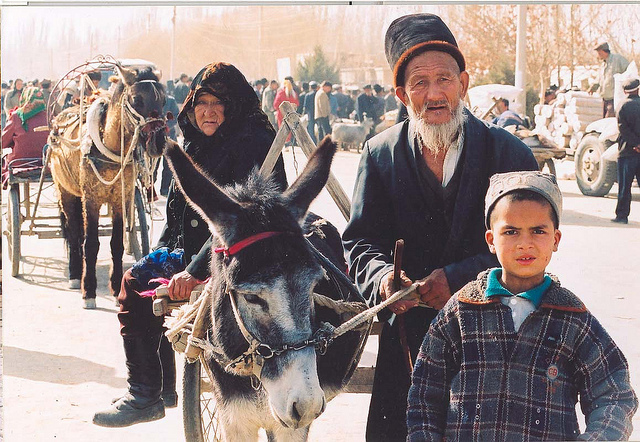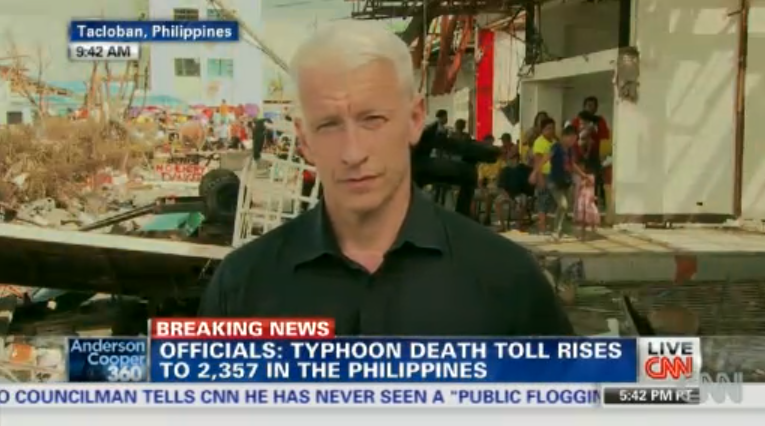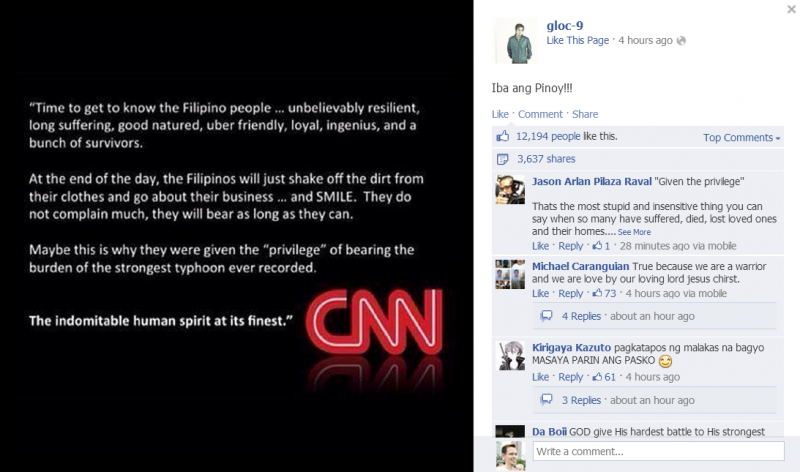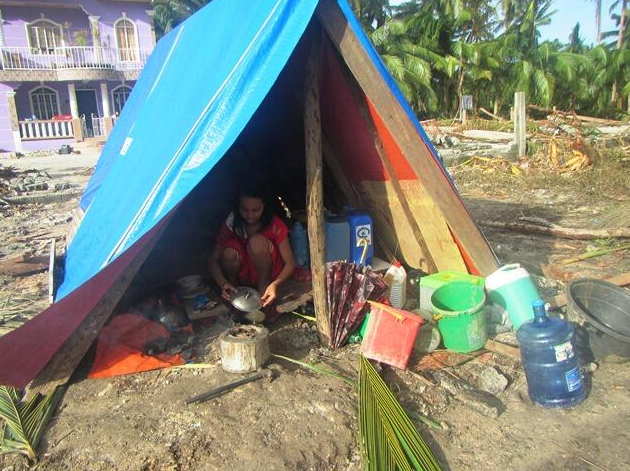Egyptian Activists Arrested Under New Anti-Protest Law
A (policeman?) not wearing a uniform touches the balls of a protester in compliance with the new protest law pic.twitter.com/gQw9NeHr0b
— Ahmed Ateyya (@Ateyya) November 26, 2013
Eighty-nine activists who are part of the No Military Trial campaign have been arrested by the Egyptian Ministry of Interior on November 26, 2013 following the new anti-protest law issued by interim president Adly Mansour on Sunday (November 24).
Hundreds of activists protested yesterday against the constitutional article draft earlier this week allowing the army to bring civilians in front of a military court, denying them the opportunity to appear in front of an ordinary court. This campaign has been going on since the beginning of the revolution. Thousands of people have since been subjected to military trials. On social media, the campaign is run under the hashtag #NoMilTrials.
On their Facebook page, the activist group posted a large number of photographs, showing the violence of yesterday's arrests by the police.
Mosireen, the citizen journalist and activist collective, has been the first to post video of the arrests, with English subtitles:
Aftee.org has posted a list of the detainees, which is getting longer by the minute. Among the detainees are the “usual suspects” and long standing activists such as Mona Seif, Nazly Hussein, Salma Said, Ahmad Ragaab and Jika's father (the iconic teenager that was shot during Morsi stay in power).
Famous blogger Zeinobia has done a great job by compiling all the events since the beginning of the protest earlier yesterday afternoon.
Journalist Hazem Abdel Hameed has posted some pictures of the arrests, with a coarse comment:
“you who arrest women… you're just a bunch of a******s”
Feminist webpage, Bahheya ya Masr, uploaded this poster “freedom to the revolutionaries”:
Mariam Kirollos noticed that lawyers were not allowed to visit the detainees:
مافيش ولا محامي عرف يدخل لحد دلوقتي
— MK مريم (@MariamKirollos) November 26, 2013
Some political and media figures have shown solidarity with the protesters:
In solidarity with those arrested, a number of political & media figures went to the police to report that they called for today's protest.
— The Big Pharaoh (@TheBigPharaoh) November 26, 2013
Among them are TV presenter Reem Magued and an assistant to the deputy prime minister:
Since @TheBigPharaoh tweeted it, I will: among today's detainees is an assistant to Deputy Prime Minister Ziad Behaa Eddin. #egypt
— Bel Trew – بل ترو (@Beltrew) November 26, 2013
13 members of the 50-member constitutional panel have suspended their participation in protest of today's crackdown. #Egypt
— Egyptian Streets (@EgyptianStreets) November 26, 2013
The latest news came that the female detainees were released later that night. Sarah Carr and Leil Zahra Mortada have commented on Facebook on conditions of their release. Sarah's comment is not currently available but Leil writes:
The police dropped off all the women detainees on a far away road heading to Upper Egypt in the middle of the desert. They have been located and activists/friends are on their way to pick them up. Few of the male detainees have been released and news that the rest will be released shortly. This is the usual practice from Mubarak´s regime. For example both Salma Said and Rasha Azab have been through this under Mubarak in 2008. They were arrested then dropped off far away on some national highway. Yet another evidence that the same repressive practices remain solid in Sisi´s Egypt. Today we witnessed the same old same, police violence, sexual assault against female protesters, humiliation and beating of the detainees, and then kidnapping them only to drop them off on some deserted road. The struggle continues. They will not silence us.
Mostafa Bassiouny had a clear and poignant analysis of the situation [link not currently available]:
“Sir, you have to understand… I beg you and beg the Prophet… This generation is not like the ones you know… They attended more friends funerals than weddings. Their backs have been stretched on the streets, that's why they'll never kneel. Don't you realize that when you build a wall, they draw an open window on it. When you shoot them with pellets, they collect them and play with them. When you pub barbwire, they use it to dry their socks and underwear. When you drag one lady naked in the square, you have 10 000 others who come back to set the score. You build a memorial for martyrs they pee on it and destroy it. What are you going to do with them since you can't afford a job for them to get busy nor a house to live in nor a piece of bread to shut their mouths so that they stop shouting slogans. For the love of the Prophet, please use your head and stop this stupidity. None of Moubarak, The Marchal (Tantawi), nor the Guide (Muslim Brotherhood guide, Badie) could tame them. Be smart and act now before it's too late. And you're still the light of our eyes (sarcastic come back at Al Sissi's famous comment about the people of Egypt being the “light of his eyes”)”
Salma Said, one of the activists who was detained tweeted just as she got out:
We were thrown in the desert, our friends found us and we are all ok. Fuck scaf and fuck the police
— salma said (@salmasaid) November 26, 2013
via Global Voices » Feature http://globalvoicesonline.org/2013/11/27/egyptian-activists-arrested-under-new-anti-protest-law/
Labels: Global Voices » Feature, IFTTT
